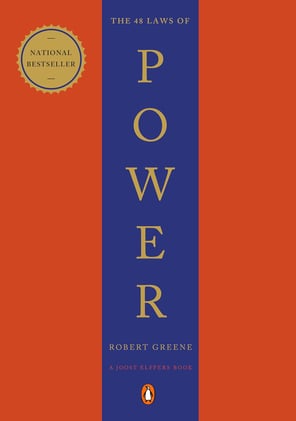The Complex Realities of Influence: Unraveling The 48 Laws of Power by Robert Greene
HUMAN BEHAVIOR


Robert Greene's The 48 Laws of Power has fascinated readers for decades, presenting a controversial guide to understanding and navigating the intricate landscape of power dynamics. Beyond the polarizing discussions surrounding its Machiavellian reputation, the book prompts us to explore its nuanced insights into the realities of power. Join me as we dissect the merits and critiques, separating the hype from the substance.
The Premise:
Drawing inspiration from historical figures like Machiavelli and Sun Tzu, Greene distills 48 laws that delve into the acquisition and maintenance of power. Often criticized for their ruthless and manipulative nature, these laws offer a candid perspective on human nature and the strategies employed to gain advantage across diverse social contexts, from business and politics to personal relationships.
Key Takeaways:
1. Power is omnipresent:
- The book contends that power dynamics are omnipresent, permeating every facet of our lives. Recognizing and understanding these dynamics become essential for effective navigation in the world.
2. Perception shapes reality:
- Greene emphasizes the significant role of appearances and reputation in power struggles. Crafting a powerful image and controlling how others perceive you become crucial elements in the pursuit of power.
3. Playing the long game:
- Acquiring power is portrayed as a gradual process that demands patience, strategic foresight, and the ability to anticipate and counter opponents' moves over an extended period.
4. Utilizing adversaries:
- Turning enemies into allies or manipulating rivals for personal advantage is presented as a potent tool. Greene provides strategies for exploiting weaknesses and transforming adversaries into unwitting allies.
Criticisms and Controversies:
The 48 Laws of Power has faced criticism for its perceived amoral stance, seemingly endorsing manipulation and deception as pathways to success. Critics argue that the book fosters a cynical view of human nature and can be wielded to rationalize unethical behavior.
Is it worth reading?
Despite the criticisms, The 48 Laws of Power offers valuable insights into the often veiled world of power dynamics. While it necessitates a critical approach and caution against blind application, the book serves as a thought-provoking resource for comprehending how power operates and navigating intricate social scenarios.
Considerations:
1. Symbolic, not literal:
- The laws are extreme examples intended for reflection and analysis, not as literal directives.
2. Contextual application:
- Apply the principles judiciously, considering the ethical implications within each unique situation.
3. Focus on self-awareness:
- Prioritize understanding your own power dynamics and motivations before attempting to influence others.
In conclusion, The 48 Laws of Power is a multifaceted and nuanced exploration that can serve as a valuable tool for self-reflection and comprehending the world. Approach it critically, acknowledging its cynical undertones, and use it as a springboard for insightful discussions on power dynamics and human behavior.
So, should you explore The 48 Laws of Power? The answer hinges on your goals and perspectives. If seeking a practical guide to wielding power, it might not suffice. However, if intrigued by the complexities of power dynamics and gaining insights into human behavior, the book can offer a thought-provoking and occasionally unsettling journey.


